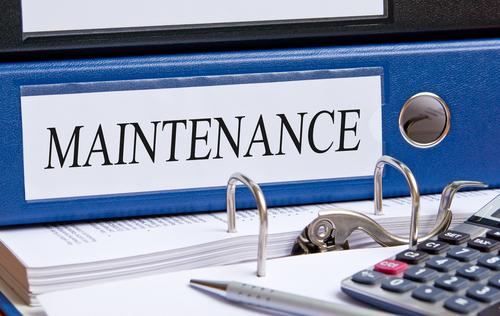
Over the past several years, short-term rentals have gained significant popularity among renters and landlords. But is it a bright idea for your next investment venture? It ultimately depends on many factors, like how much time you can commit and how secure you expect your investment to be. That said, the short-term rental market isn’t diminishing any time soon. So, stick with us while we go over the pros and cons and how to analyze short-term rental markets.
What is a Short-Term Rental?
A short-term rental property is typically a vacation rental you rent for a daily or weekly rate. Short-term rentals, like AirBnbs, offer a more personable alternative to hotels. Typically, vacation rentals have more space, privacy, and other desirable amenities for travelers.
That said, people looking for vacation rentals are usually looking for properties near main attractions or activities. So, there are several things for investors to keep in mind when deciding to buy a short-term rental property. If you’re not sure if it’s right for you, check out some considerations below.
Are Short-Term Rentals Right For You?
Before any investment, you’ll want to ask yourself a few questions. After all, any rental property investment will require time, money, and patience. However, short-term rentals are different than long-term rentals. So here are a few points you’ll want to consider before investing.
- How much work does the property require? – If the property needs a lot of maintenance, repairs, or cleaning, you’ll need to fix issues before renting it out.
- Is the rental in a desirable location or tourist area? – Short-term rentals in desirable tourist locations can have higher rental rates and fewer vacancies.
- How far away will you live from the rental? – If you don’t live near your short-term rental, it’s crucial to hire a Philadelphia property management company to help with communication or emergencies.
- Can you afford costs during vacancies? – If nobody is renting out your property, you’ll have to cover costs out of pocket. Short-term rentals can see busier months and slower months, so it’s essential to plan for each season.
- How much time do you have to commit? – Coordinating reservations, greeting guests, maintaining the property, marketing your rental, and cleaning after each occupant can take a lot of time. If owners don’t have the time to commit to these duties, you’ll have to plan for property management costs.
How to Analyze Short-Term Rental Markets
Before investing, you’ll want to know how to analyze short-term rental markets in any area. Some of the considerations for short-term rentals are different from those of long-term units. Here are seven things to consider when performing a short-term rental analysis.

- Location
- Demand
- Season
- Property Type
- Occupancy
- Income
- Expenses
Location
Location is one of the most important aspects of a short-term rental property. Most short-term rentals are used by travelers, whether it’s for business or leisure. However, the locations people are looking to travel to have changed over the years.
These days, AirDNA’s 2022 Short-Term Rental Outlook Report suggests guests are interested in properties near small cities and rural towns, destination locations, resort areas, and midsized cities. So, before investing in an unfavorable spot, check out where the popular rentals are located.
Demand
The demand in whatever location you choose is another critical factor to consider before investing. If there’s no demand for short-term rentals in a specific location, you may want to keep looking. That said, tourist attractions, local businesses, and shopping centers can increase appeal in some areas.
Season
Seasons are another considerable part of short-term renting. Most people plan out vacations according to seasons and seasonal activities. So, during the summer, you may see more demand for a beachfront rental. On the other hand, you may see increased demand for a winter rental property during the ski season.
Property Type
The type of property you purchase can also have a significant impact on the demand and profitability. These days, travelers are interested in larger homes with two or more bedrooms, so everyone has privacy throughout their stay.
When it comes to the aesthetics of the property, it’s important to provide a unique experience. Most renters look for a unique experience that provides better amenities than a hotel. So, anything you can do to make your rental property stand out, you’ll be sure to attract more short-term renters.
Occupancy
In a long-term rental, you have guaranteed occupancy 100% of the time, unless there are unforeseen circumstances. However, you don’t always have 100% occupancy with a short-term rental. Instead, you calculate the occupancy rate by dividing the number of nights a home is rented by the number of nights available.
For example, if there are 30 days in the month and 19 nights booked, the occupancy rate is 63% for that month. Now, the rate doesn’t seem that high, but you can set rental rates that will cover your mortgage and other expenses.
Income
When you invest in any rental property, the end goal is to make a profit. That said, there are several factors that can determine your income for a short-term rental. For example, how well is the property marketed? If you don’t market your property well, it won’t gain as much traction as other rentals.
Also, consider factors such as:
- Can you book the rental online?
- Guest reviews–are they good or bad?
- How many people can occupy the property?
- What are the provided amenities?
These factors can play a significant role in how much income you generate from your short-term rental property.
Expenses

You’ll likely generate more revenue with your short-term rental versus a long-term rental. However, that doesn’t mean the expenses will be less. In fact, short-term rentals can require extra expenses along with typical costs like property management, property taxes, and insurance.
Some extra expenses to consider for your short-term rental may include:
- Booking fees on platforms like Airbnb and Vrbo
- Paid utilities, including water, electric, internet, and cable TV
- Bathroom and kitchen supplies and utensils
- Living room, bedroom, and common area furnishings and decor
- Cleaning costs after each guest
Pros and Cons of Short-Term Rentals
Once you learn how to analyze short-term rental potential, you’ll notice some advantages and disadvantages. Additionally, if you research the differences between short-term rentals and long-term rentals, you’ll notice some pros and cons to each type. Here are some of the main pros and cons to consider with a short-term rental property.
Pros of Short-Term Rentals
- Higher Rental Rates- Landlords typically set higher rates for short-term rentals than long-term properties.
- More Tax Breaks- Short-term rentals can offer more tax breaks, like cleaning and maintenance expenses.
- Unfixed Rates- Long-term rentals have fixed rates that remain consistent for a lease term. With a short-term rental, landlords can charge rates based on demand, seasons, holidays, or weekends to maximize profitability.
Cons of Short-Term Rentals
- Little Tenant Verification- When renting out a vacation home online, it can be hard to verify or screen each renter.
- Variable Income- You have consistent income each month in a long-term rental. However, your income could vary drastically from one month to another with a short-term rental.
- More Restrictions- Short-term rental owners must stay up to date and follow all local ordinances and regulations to avoid any issues.
Maximize Your Short-Term Rental Income

Whether you are looking to invest now or later, it’s essential to know how to analyze short-term rental market potential. Then, you need to prepare for your investment. That said, if you want the benefits of a short-term rental but don’t want to live close by, you can hire property management to take care of it for you.
Bay Property Management Group can help your short-term rental succeed, no matter where you live. If you need help with the day-to-day tasks of your rental investment, contact us today. We offer comprehensive services in Baltimore, Philadelphia, Northern Virginia, and Washington DC.
